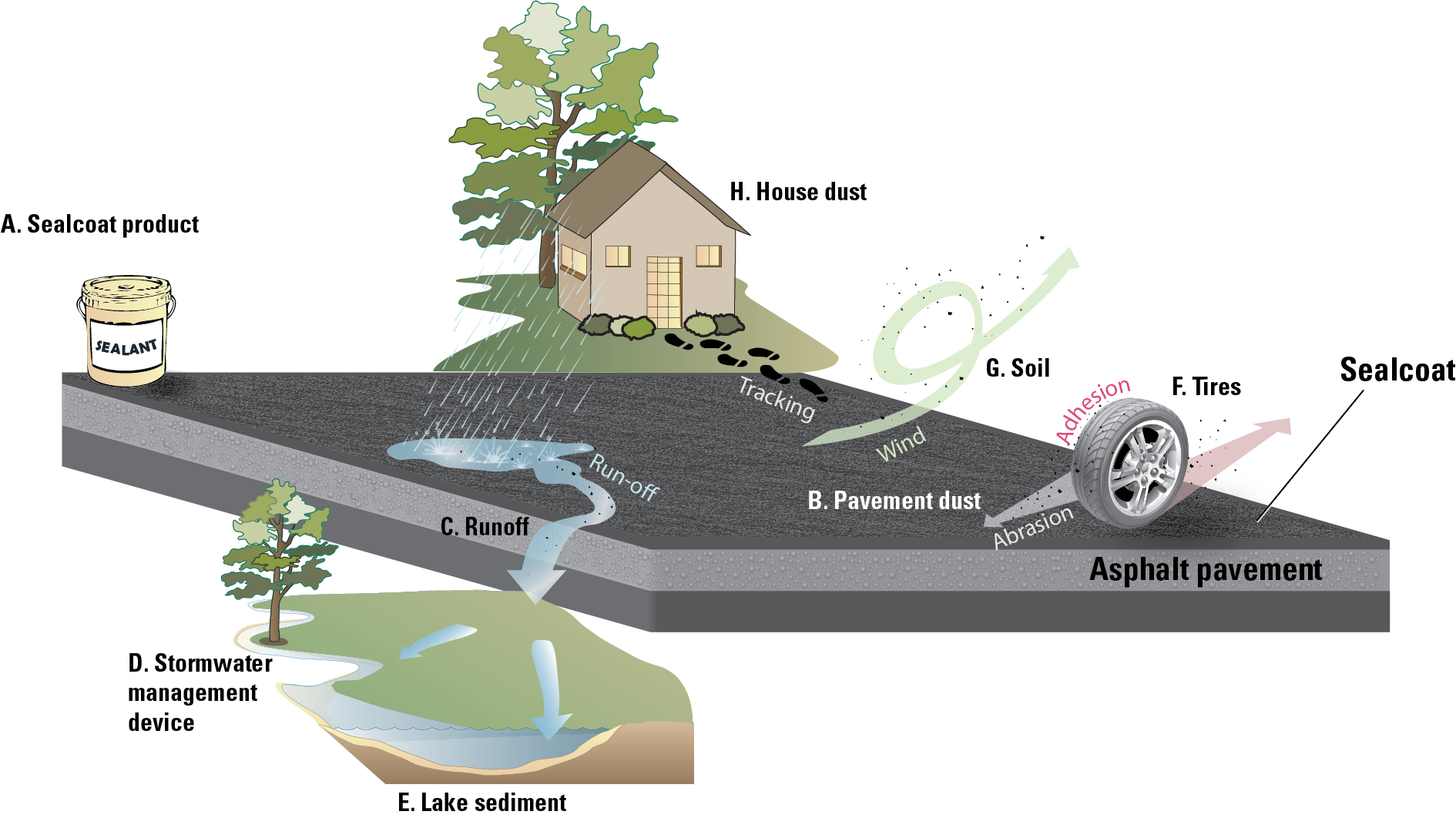Home → Land Resources → Watershed → Coal-Tar Sealants
Coal-Tar Sealants
Concerns for the environment and public health, as well as Maine law prohibiting sale and application
Maine Law | Frequently Asked Questions | Additional Resources | DEP Contacts
Many parking lots and driveways are coated with sealcoat, a dark, viscous liquid, to maintain and improve the appearance of the underlying pavement. Coal-tar sealants contain high levels of polycyclic aromatic hydrocarbon compounds (PAHs), which are known and probable carcinogens. Stormwater runoff from areas treated with coal-tar sealants can carry PAHs into streams, lakes, and marine waters, putting fish, other aquatic life and human health at risk.

Maine Law
In 2019, the Maine legislature enacted P.L. 2019, Ch. 493, An Act Concerning Pavement Sealing Products, which prohibits the sale and application of coal-tar sealant products on driveways and parking lots. Beginning in October 2023, wholesale and retail sales of coal-tar sealant products are prohibited, and application of coal-tar sealant products is prohibited beginning in October 2024.
The Department is responsible for ensuring compliance with the law. In 2022 and 2023, DEP provided information to retail stores and wholesale suppliers to raise awareness about the law and provide an opportunity to obtain alternatives by the time the ban comes into effect.
Frequently Asked Questions
- Why are PAHs an environmental and health concern?
-
Coal-tar-based sealcoat products contain about 1,000 times more PAHs than asphalt-based sealcoat. PAHs are a concern because many cause cancer, mutations, birth defects or death in fish and other aquatic life. EPA has classified several PAHs as probable human carcinogens. Exposure to PAHs, especially early in childhood, has been linked to an increased risk of lung, skin, bladder, and respiratory cancers.
- How can I tell if a product contains coal-tar?
-
Check the product’s MSDS (material data safety sheet) and look at its CAS (Chemical Abstracts Service) number. The CAS number for coal-tar is 65996-93-2. Choose products without this CAS. Some products may have a “coal-tar free” label.
- What can I use instead of coal-tar sealants?
-
Petroleum asphalt-based sealants (CAS number 8052-42-4) are a readily available alternative to coal-tar-based sealants. Asphalt-based sealants have significantly lower concentrations of PAHs and lower potential for contributing harmful material into the environment. Asphalt-based sealants have been used in the western United States for decades.
Pavement options such as pervious concrete, permeable asphalt and paver systems do not require any sealants. These types of pavements also allow stormwater to naturally infiltrate, resulting in decreased runoff.
Web Sources and Additional Resources
- Coal-Tar-Based Pavement Sealcoat—Potential Concerns for Human Health and Aquatic Life (fact sheet 2016-3017), United States Geological Survey
- Coal-Tar-Based Pavement Sealcoat, Polycyclic Aromatic Hydrocarbons (PAHs), and Environmental Health (web pages), United States Geological Survey
- Polycyclic Aromatic Hydrocarbons, Coal-Tar Sealcoat, and Stormwater Pollution (fact sheet), United States Environmental Protection Agency
DEP Contacts
General Questions
Wendy Garland (207) 615-2451, wendy.garland@maine.gov
Compliance/Enforcement Questions
Pam Parker (207) 485-3038, pamela.d.parker@maine.gov